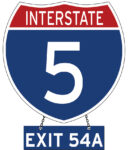 Editor’s Note: This is the 27th chapter in Volume 3 of Publisher and Editor Donald H. Harrison’s 2022 trilogy, “Schlepping and Schmoozing Along the Interstate 5.” All three books as well as others written by Harrison may be purchased from Amazon.com
Editor’s Note: This is the 27th chapter in Volume 3 of Publisher and Editor Donald H. Harrison’s 2022 trilogy, “Schlepping and Schmoozing Along the Interstate 5.” All three books as well as others written by Harrison may be purchased from Amazon.com
Schlepping and Schmoozing Along the Interstate 5, Volume 3, Exit 54A (Harbor Drive): Marine Corps Base Camp Pendleton
From northbound Interstate 5, take Harbor Drive exit and turn left onto Harbor Drive/ County Highway S21: Name will change to Vandegrift Boulevard. Civilian entrance to Marine Corps Base Camp Pendleton must be prearranged with military authorities at 2050 Vandegrift Blvd. Telephone (760) 725-3888 in advance.
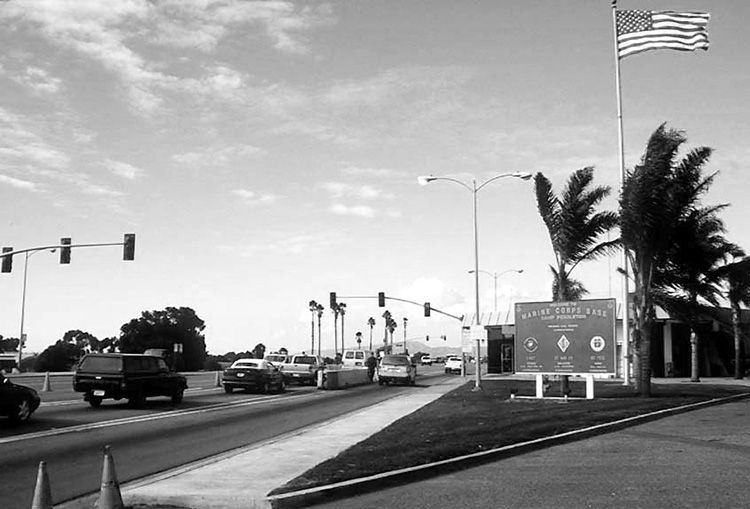
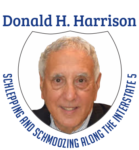 CAMP PENDLETON, California – Not far inside the main entrance of the 125,000-acre Marine Corps Base Camp Pendleton is the Camp Del Mar headquarters for the storied I Marine Expeditionary Force. There, from 2012 through 2014, Navy Capt. Irv Elson worked as a Force Chaplain on the way to his ultimate assignment in uniform as the Deputy Chaplain of the Marine Corps, the first Jew to achieve that rank.
CAMP PENDLETON, California – Not far inside the main entrance of the 125,000-acre Marine Corps Base Camp Pendleton is the Camp Del Mar headquarters for the storied I Marine Expeditionary Force. There, from 2012 through 2014, Navy Capt. Irv Elson worked as a Force Chaplain on the way to his ultimate assignment in uniform as the Deputy Chaplain of the Marine Corps, the first Jew to achieve that rank.
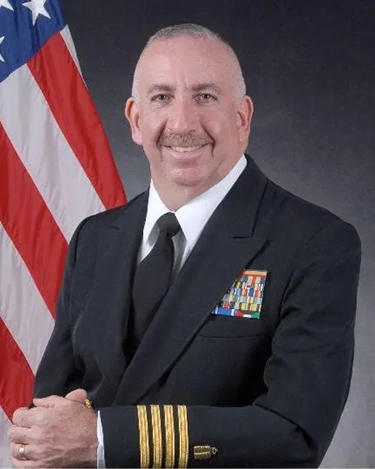
Elson retired from the Navy in September 2016 with 35 years of service, including his time in the Reserves in the 1980s while studying to be a rabbi at the Jewish Theological Seminary. Shortly after his military retirement, Elson became the director of the civilian Jewish Welfare Board, which is an official adviser to the U.S. military concerning the credentials of rabbis applying to be chaplains. JWB also is dedicated to serving the needs of Jewish miliary personnel and their families all over the world.
In a June 2022 interview, Elson recollected that while he was the Force Chaplain at Camp Pendleton, one aspect of his job was to advise the three-star general who led the I Marine Expeditionary Force “on matters of free exercise of religion and the morale of the troops.” Logistics was another aspect of the job. He had to make certain “that we had the number of chaplains that were needed to be in the right places with the right training,” he said.
At the time, that involved supervising the work of 110 chaplains of all faiths and enlisted Religious Program (RP) specialists serving 62,000 military personnel engaged in combat operations in both Afghanistan and Iraq.
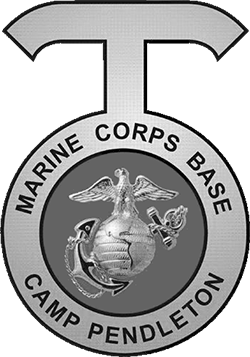 He dealt with such questions as “What did the chaplains need to know to be in combat? What do they need to know about the other faith groups in their unit? And once we figure all that out, how do we train them for that? Do they have the time for that training? And what about unit placement? Where are they going? If they are in Afghanistan do they have a chaplain? If not, can we get them a chaplain? If not, who is the closest chaplain to take care of them?”
He dealt with such questions as “What did the chaplains need to know to be in combat? What do they need to know about the other faith groups in their unit? And once we figure all that out, how do we train them for that? Do they have the time for that training? And what about unit placement? Where are they going? If they are in Afghanistan do they have a chaplain? If not, can we get them a chaplain? If not, who is the closest chaplain to take care of them?”
As the Force chaplain, he recalled, the job involved a lot of traveling around the Marine Expeditionary Force and talking to chaplains and seeing what their needs were.” An additional responsibility was to serve as the chaplain for the I-MEF commandant, who between 2012 and 2014 was Lt. Gen. John A. Toolan, and his staff. “It is a sacred position,” Elson reflected. “You are working for a man with heavy, heavy responsibilities, especially in combat, and what are his needs? How can you be a chaplain for him or her and take care of his or her needs without getting in the way? It is hard work. You are not jumping out of helicopters, John Wayne style, but that is what senior chaplains do. Junior chaplains talk tactics, senior chaplains talk logistics.’’
When he traveled with the I-MEF to Afghanistan, his duties were similar. “Whereas in the States, I went to the different units around Miramar and Pendleton, in Afghanistan it was a little more dangerous but it was the same thing. For our chaplains, do they have what they need to do their job, and are they doing okay? You get to be the chaplains’ chaplain. And then the same thing for the general, you get to be the general’s chaplain. All the stakes are higher when you are there.”
In addition to attending to the needs of chaplains of all different faiths, Elson also, in his specific role as a Jewish chaplain, traveled throughout Afghanistan to conduct services and visit Jewish Marines. “I was there for the High Holidays; I was there for Passover. It was wonderful work under horrible circumstances.”
In his previous assignment prior to becoming Force chaplain, Elson had served as the chaplain for the III Marine Aircraft Wing, which is an element of the I Marine Expeditionary Force. There, while stationed at Marine Corps Air Base Miramar, he supervised over 30 chaplains and enlisted support personnel.
Because he and his wife, the former Fran Dishler, and their children, Jacob, Aliza, and Abigail, already were living in San Diego when he was transferred to Camp Pendleton, the family elected to continue living in their home in the University City neighborhood rather than moving onto the base. He commuted to work, generally arriving at his office at 7 a.m. and returning home at 6 p.m. “I hated Interstate 5,” he commented. “I hated the traffic. Coming home was painful.”
On the other hand, a favorite memory from that part of his life was bicycling from his Camp Pendleton office down to Del Mar and back along the Coast Highway. “That was my therapy,” he said. He often was accompanied by the Navy Chief Petty Officer who served as his Chaplain’s Assistant.
That enlisted position was one that Elson held in particular esteem. Back in March 2004, Chaplain’s Assistant Robert Page won a Bronze Star for saving Elson’s life while Elson was serving with the 1st Battalion of the 11th Marine Regiment during the Battle of Al Nasariyah. Iraqi soldiers, using civilians as a shield, fired on a U.S. position while Elson was ministering to wounded personnel. Chaplains do not carry weapons, so when Page, a Christian, heard bullets slapping near the 6-foot, 1-inch Elson, he pushed him down and covered him with his own 6-foot, 7-inch frame, saving his life while the rest of his unit drove off the attackers.
In a 2010 interview with Alison Buckholtz for Hadassah magazine, Elson paraphrased what Mordecai said to Esther in the well-known Purim Megillah. “Maybe it is for this that God put you in that place.” Said Elson: “It was horrible, but the most important result was that when someone comes to talk to me about their combat experience, I can say I know what they are going through, and they know that I know. It’s a powerful pastoral connection.” He deepened that knowledge in 2004 with service during the Battle of Fallujah.
A sentimental high point of his service in Iraq, Elson told a reporter for Times of Israel, was that he was able to hold a Shabbat service in Ur, the town believed to be the birthplace of the biblical patriarch Abraham.
After his service at the I-MEF, Elson was assigned in 2014 to Annapolis, Maryland, where he served as the Deputy Chaplain for the entire Marine Corps. Annapolis was like returning to a second home. Prior to his service in Iraq, as the chaplain at the U.S. Naval Academy, Elson had raised funds and helped design the Uriah P. Levy Center and Jewish Chapel. That center was named for veteran of the War of 1812 who became the first Jewish commodore in the United States Navy and who was credited with helping to end flogging as a form of punishment in the Navy.
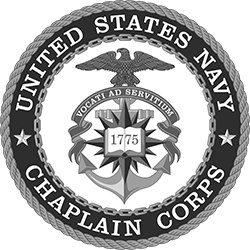 Elson’s assignment as Deputy Chief of Chaplains for the Marine Corps came because “the Navy, like the Mafia, made me an offer I couldn’t refuse,” he quipped. “I had the honor of serving in that position for 2 ½ years.” Once again, he focused on chaplain allocation issues, not just for the I-MEF “but for the entire Marine Corps,” he said. “It was longer-ranged. For example, how many chaplains will we need, not for the next deployment, but ten years in the future? It takes that long to grow a senior chaplain. I considered myself very lucky to work in the Pentagon. I worked for an amazing chaplain, a one-star admiral (Brent W. Scott, a Baptist), who was Chief of Chaplains for the Marine Corps, and his boss, a two-star Admiral (Margaret Kibben, a Presbyterian) who was Navy Chief of Chaplains.’
Elson’s assignment as Deputy Chief of Chaplains for the Marine Corps came because “the Navy, like the Mafia, made me an offer I couldn’t refuse,” he quipped. “I had the honor of serving in that position for 2 ½ years.” Once again, he focused on chaplain allocation issues, not just for the I-MEF “but for the entire Marine Corps,” he said. “It was longer-ranged. For example, how many chaplains will we need, not for the next deployment, but ten years in the future? It takes that long to grow a senior chaplain. I considered myself very lucky to work in the Pentagon. I worked for an amazing chaplain, a one-star admiral (Brent W. Scott, a Baptist), who was Chief of Chaplains for the Marine Corps, and his boss, a two-star Admiral (Margaret Kibben, a Presbyterian) who was Navy Chief of Chaplains.’
Kibben subsequently became chaplain for the U.S. House of Representatives, and Scott succeeded her as Navy Chief of Chaplains. Two weeks after completing his assignment, Elson succeeded Rabbi Harold Robinson as director of the Jewish Welfare Board.
“Talk about a job I was born for, the JWB was created on my birthday, April 9th,” Elson said. That was April 9, 1917, when the U.S. was entering World War I; Elson was born 43 years later on the same date in 1960. “I really hate the name ‘Jewish Welfare Board’; it doesn’t denote what we do; you might picture me handing out sandwiches down there in Old Town,” he groused. “The original name was the Board for the Welfare of Sailors and Soldiers. Our mission is to provide a meaningful life for Jews in the military. We are the representatives of the American Jewish community to the Department of Defense and in that capacity, I am the one who is tasked by the DOD to validate the credentials of rabbis who want to be military rabbis.”
“We also serve as advocates for the American Jewish community to the DOD for such issues as when a soldier or sailor wants to have a beard for religious purposes, or a yarmulke, or kosher food, or observe Shabbat,” he added. “We are advocates for that, not at the individual level but at the policy level. If the DOD has a question for the American Jewish community, they come to us.”
“We also have programs for meaningful Jewish life in the military,” Elson stated. “We are in the second year of an online Hebrew school for the children of Jewish military personnel around the world. We have a great parent ambassador program, a lay-leader-training program for places where there isn’t a rabbi. So, if you think about Jews and Judaism in the military, we have a role to paly in that.”
There was in 2022 a national shortage of rabbis both for civilian congregations and in the military. “If you see my gray hairs that is from trying to recruit rabbi,” Elson said. “Currently there are 37 rabbis on active duty in all the services.”
The kinds of issues that might cross his JWB desk in a single day could include working with the Pentagon about MREs – Meals, Ready to Eat –with those that are kosher disappointingly having a shorter shelf life than non-kosher packaged meals. Additionally, “there’s a Jewish family in Okinawa who needs a mohel because they are going to have a baby. I also work with all the denominations (Orthodox, Conservative, Reform, Reconstructing Judaism, and so forth) trying to get them to agree to certain things. It’s a varied job and you add to that that I spend three days a month in New York wearing my hat as a vice president of the Jewish Community Center Association of North America and about a week a month visiting rabbis around the world.”
A current initiative is a virtual Hebrew school for Jewish dependents in kindergarten through 12th grade via military platforms. Another is updating JWB Haggadahs for Passover. “Whenever there is a military initiative, we try to come up with a Jewish version,” Elson told me. “The military is working on a program called ‘Spiritual Fitness’ and we are trying to work on a Jewish component of that. And we are also working on an initiative where a child of a Jew serving in the military, who wants to go to a Jewish summer camp, will be able to go on a scholarship program.”
The chaplain was born in Mexico City to a father, Allen Elson, who hailed from Detroit, and a mother, Beatriz Schoepper, whom his father met while visiting the Jewish community in Mexico’s capital city. Irving Elson’s maternal grandfather Emilio Schoepper, had immigrated to Mexico City form Poland in 1922. Allen Elson had served as an enlisted U.S. Marine during the Korean Conflict, leaving the service as a staff sergeant.
Chaplain Elson said he grew up speaking English to his father and Spanish to his mother and sister. He also became fluent in Hebrew, but he noted that Israelis say his Hebrew has a slight Mexican accent.
Elson said his father “encouraged, more than encouraged, he always felt that it was important for you to serve your country. He always used to say, ‘I don’t care what you do in your life but after college you should be in the military.’ When I decided to become a rabbi (after attending college at Yeshiva University), I said, Well, okay, I will become a chaplain for a couple of years and get a little experience, and do a little travel, and then I will get out and get a local synagogue. Thirty-five years later they finally ‘kicked me out’ of the Navy.”
Elson would have stayed longer, probably, but he had reached the maximum time before retirement for a Navy captain. In the meantime, however, he did get to do some traveling with his wife Fran. Besides Iraq, Afghanistan, Annapolis, and San Diego, Elson saw duty in Okinawa, Japan (his first duty assignment); Charleston, South Carolina; Naples, Italy; Newport, Rhode Island; and Scotia, New York.”
*
Donald H. Harrison is publisher and editor of San Diego Jewish World. He may be contacted via sdheritage@cox.net